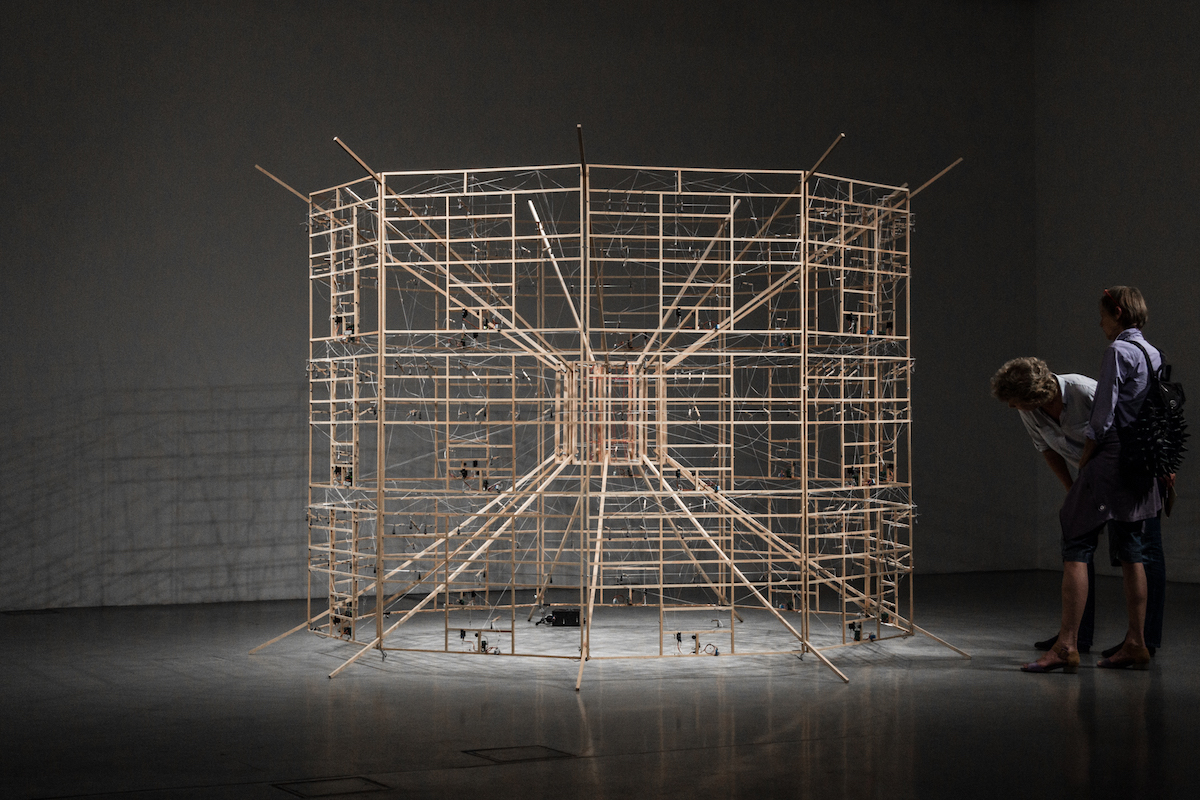
Co-authored with artist Ralf Baecker, this chapter discusses the way Baecker's work transforms familiar models of computing, in the process creating 'epistemological' rather than 'utilitarian' machines. It discusses works including Rechnender Raum (2007) and Irrational Computing (2011).
What kinds of machines are these? If they are in some sense computers, then what can they say about computing? Baecker offers one possible answer, citing the influence of early mechanical automata – what he describes as theatrical, philosophical or epistemological devices. These are machines for thinking with, devices that demonstrate, enact or provoke forms of knowledge. Baecker contrasts this reflective function with the "utilitarian" computers of our everyday experience; though this is not to say that our familiar computers are any different in their operation. Following Foucault, Jussi Parikka argues that all media are "epistemological machines" – that they "participate in creating regimes of knowledge across arts and sciences". We are immersed in a regime of knowledge that our machines reinforce, and so it becomes transparent to us. By physically transforming the computer – and ultimately also transforming computation itself – Baecker’s work prompts us to reflect on these machines and their grasp on the world.
in Experiencing the Unconventional: Science in Art ed. Theresa Schubert and Andrew Adamatzky. World Scientific, 2015.' | pdf